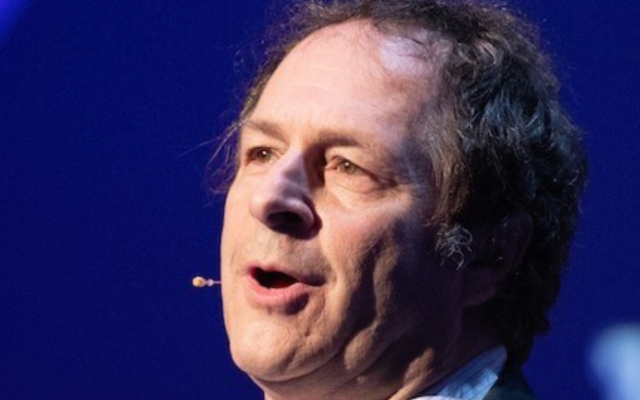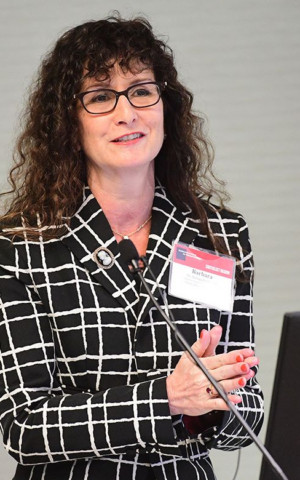New Psychedelic Revolution Leader Contemplates Success
After over 37 years of research and education, Rick Doblin and the organization he founded has submitted the first application for the approval of a psychedelic drug in U.S. medical history.

Rick Doblin, the psychologist and educator who has been a powerful advocate for the medical use of psychedelic drugs, missed much of the original excitement over the mind-altering treatments.
Doblin, who just celebrated his 70th birthday, was just a child when medical researchers in the 1950s began studies about the benefits of drugs like LSD and the “magic mushroom,” psilocybin. By the time Doblin had his Bar Mitzvah in suburban Chicago in the mid-1960s, there were more than a thousand published studies about the drugs.
Tens of thousands of patients had taken the drugs as treatments for their depression and to relieve their psychological trauma. They were used to relive psychiatric disorders and alcoholism. A half dozen international conferences were organized around the possibilities the drugs offered. But, despite their use in medical research, the FDA never formally approved the use of the drugs in America. Then, when Doblin was only 16, during the Nixon Administration Congress passed Title 2 of the Drug Abuse Prevention and Control Act of 1970 outlawing all psychedelic drugs. Just as Doblin was reaching young adulthood, medical research abruptly ended. Overnight, what had once been such a promising new frontier for medicine, dried up.
It was shortly thereafter that Doblin decided to spend the rest of his life restoring psychedelics to what he considered their rightful place in an arsenal of psycho-pharmaceutical medications.

“I had done a lot of LSD and mescaline, and I went to the guidance counselor at college and asked for help. And he actually did help me. He gave me a book by the psychiatrist Stanislav Grof, who was among the world’s leading LSD researchers. I read it in 1972 when I was 18 years old, and that’s when I decided to focus my life on psychedelics and try to bring back psychedelic research.”
And that’s just what he’s been doing for over 50 years now, a dogged single-minded quest to convince the Food and Drug Administration, which approves the use of new drugs, to reinstate psychedelics as the wonder substances that Doblin believes them to be.
“The whole attitude has changed. There’s more psychedelic research now than at any time since the 60s. It’s widespread all over the world. There’s hundreds of psychedelic pharmaceutical companies that are for profit. Billions of dollars have been raised from capital markets and philanthropy. We’re in the midst of a renaissance of psychedelic research.”
This week, Doblin and the organization he founded, the MAPS Public Benefits Corporation, in a landmark action, formally submitted an application to the FDA to approve MDMA, a psychedelic drug that is more commonly known on the streets as Ecstasy, as a treatment for Post Traumatic Stress Disorder. If approved, the drug would become the first psychedelic to win US government approval.
Some of the most dramatic work supporting the application has been done at Emory University Brain Health Center where Barbara Rothbaum has developed research protocols for MDMA. As director of Emory’s Trauma and Anxiety Recovery Program, she has demonstrated the effectiveness of the drug as an important aid to therapy, particularly for veterans who are recovering from psychological trauma.
Some of the most dramatic work has been done at Emory University Brain Health Center where Barbara Rothbaum has pioneered the use of MDMA, more commonly known as the party drug, Ecstasy, to treat Post Traumatic Stress Disorder and depression. As director of the Trauma and Anxiety Recovery Program, she has demonstrated the effectiveness of the drug as an important aid to therapy, particularly for veterans who are recovering from psychological trauma.
“It helps with feelings of closeness to others, empathy, insight, and wellbeing,” Rathbaum says. “It reduces activity in the amygdala in the structure of the brain which is often where we respond to anger and fear stimuli. It reduces anxiety without inhibiting the ability to experience or reflect upon those intense emotions. So, we think that that’s a big one for PTSD in dealing with the memory of the trauma.”

Israel has also been a center for the clinical trials for psychedelics and there has been some thought given in recent weeks to allow the drug to be used to treat some of the survivors of the Oct. 7 attacks in Southern Israel. Rothbaum has high hopes that the FDA will give final approval to MDMA by mid-2024.
Additionally, Emory has founded a Center for Psychedelics and Spirituality, which it describes as the world’s first center to fully integrate clinical work with psychedelics and research to explore new mental health treatments.
Although MDMA, psilocybin, and LSD are still considered dangerous drugs under Federal law, both Oregon and Colorado have liberalized the use of psychedelics. At least 10 states are considering the abandonment of restrictions on the substances.
To do the research to rehabilitate the promise of psychedelic drugs has been extraordinarily expensive. In 1986, Doblin established MAPS, the Multidisciplinary Association for Psychedelic Studies, to fund education about psychedelics and to help encourage research.
Doblin estimates that the organization has raised over $145 million dollars from foundations and individual donors and a similar amount from investors. In June of this year, the MAPS organization sponsored the largest scientific conference ever on the use of psychedelics in health care. The meeting in Denver attracted over 12,000 persons.
For Doblin, these are exhilarating times that he fully credits to his lifelong love affair with mind expanding drugs.
“Psychedelics have helped give me a sense of purpose,” he said, “they’ve helped give me clarity and confidence.”



comments